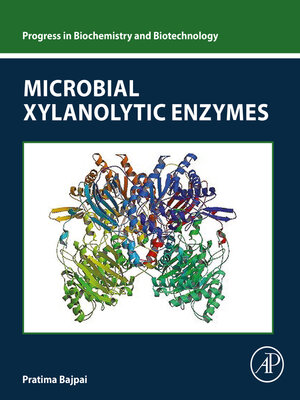
Sign up to save your library
With an OverDrive account, you can save your favorite libraries for at-a-glance information about availability. Find out more about OverDrive accounts.
Find this title in Libby, the library reading app by OverDrive.



Search for a digital library with this title
Title found at these libraries:
| Library Name | Distance |
|---|---|
| Loading... |
Microbial Xylanolytic Enzymes describes the enzyme structure and its interaction with plant cell walls, the properties and production of different enzymes and their applications, and the knowledge gathered on the hydrolysis mechanism of hemicellulose. The knowledge gathered about the hydrolysis mechanism of the hemicelluloses, especially xylans, has greatly promoted the rapid application of these enzymes in new areas. In recent years, there has been a spurt of interest in xylan degrading enzymes due to their applications in several industrial processes, including paper and pulp industries, food and feed industries, biofuel industry, textile industry, chemical and pharmaceutical industry, brewing industry, and more.
Xylan is the principal type of hemicellulose. An enzymatic complex is responsible for the hydrolysis of xylan, but the main enzymes involved are enzymes produced by fungi, bacteria, yeast, algae, protozoans, and more. - Gives up-to-date authoritative information and cites pertinent research on the synergistic action of xylanolytic enzymes
- Includes studies on xylanase regulation and synergistic action between multiple forms of xylanase
- Covers, in great depth, all aspects of Xylanolytic enzymes
- Includes detailed descriptions on Xylanolytic enzymes as a supplement in animal feed, for the manufacture of bread, food and drinks, textile industry, pulp and paper industry, biofuel industry and production of pharmaceuticals and important chemicals and waste management, etc.
- Challenges future trends in the commercial production and application of xylanases







